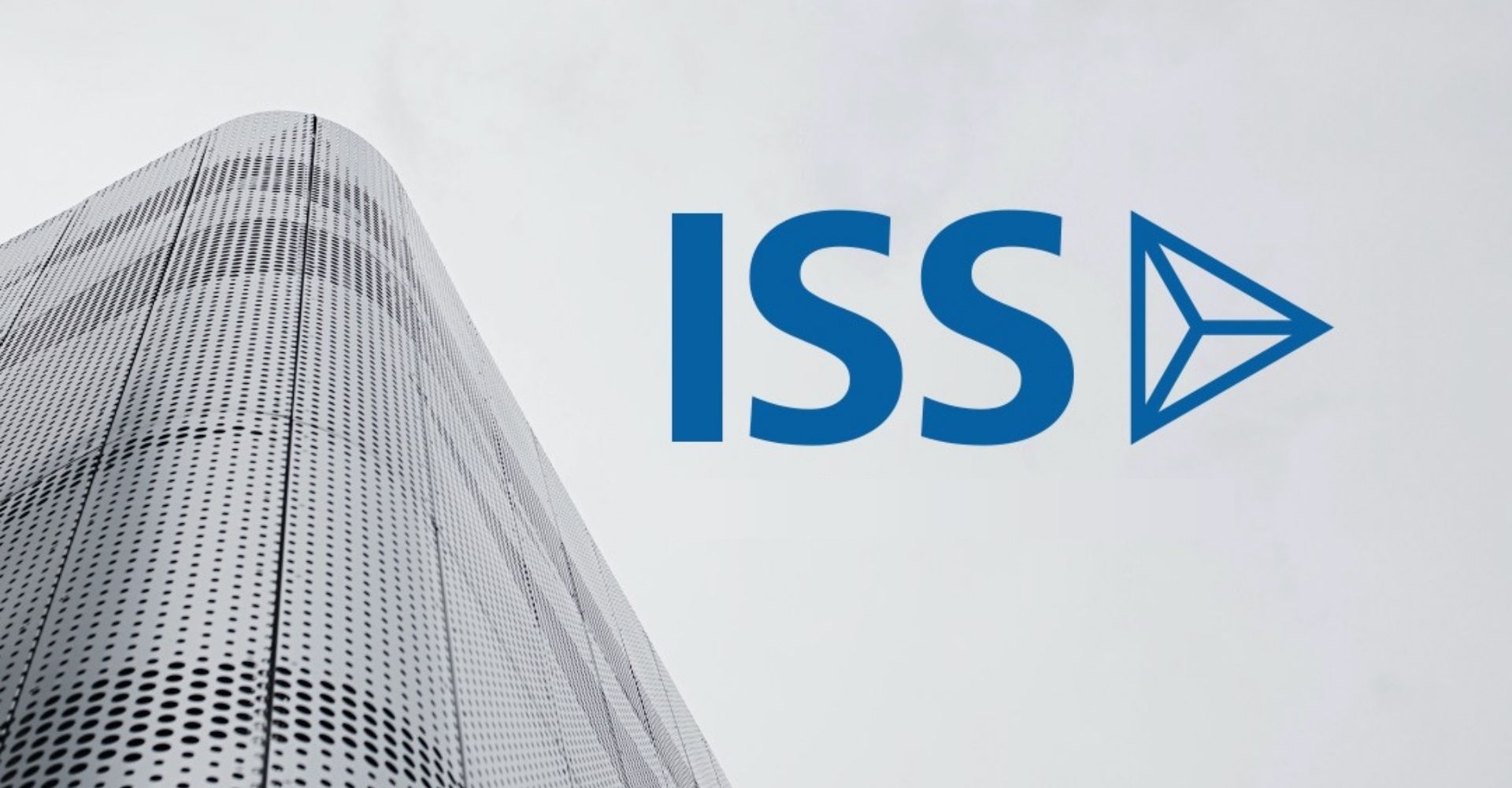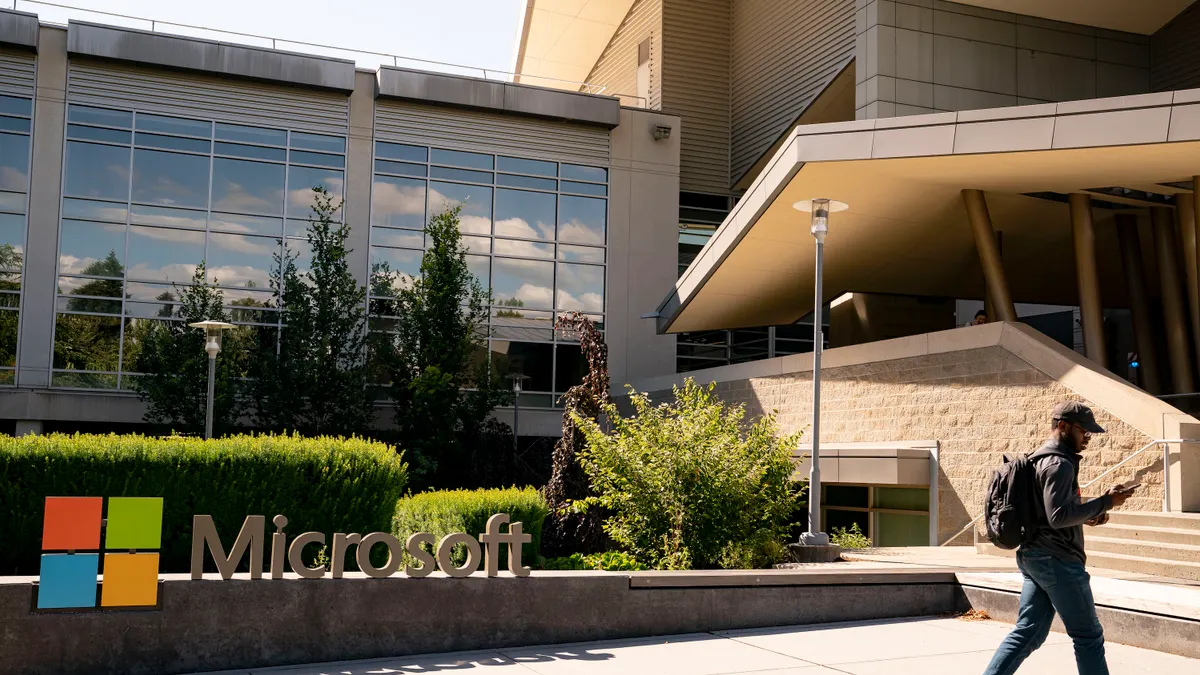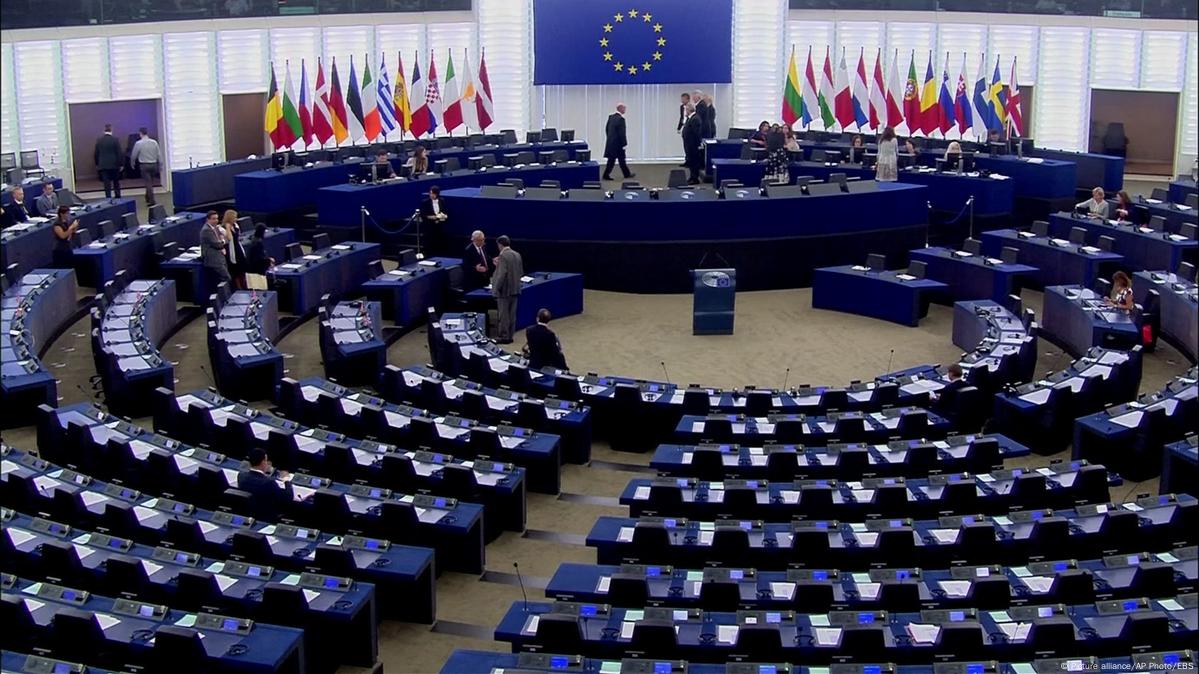Gillian Tett and Mohamed El-Erian Deliver Fireside Chat at Greenwich Economic Forum
Gillian Tett, Editor at Large at the Financial Times interviews Mohamed El-Erian, Senior Advisor at Gramercy Funds Management on capital market at Greenwich Economic Forum (Greenwich, CT)
HIGHLIGHTS
- Mohamed El-Erian helped grow PIMCO’s AUM by $1 trillion
- Mohamed El-Erian has been named one of the 500 most powerful people on the planet
- El-Erian is credited with developing the financial concept of “the new normal”
FULL COVERAGE
INTERVIEW TRANSCRIPTS: Gillian Tett, Editor at Large at the Financial Times and Mohamed El-Erian, Senior Advisor at Gramercy Funds Management
Julia La Roche – Correspondent, Yahoo Finance: 00:00
We’re excited to kick off with our first fireside chat, which will be hosted by Gillian Tett, editor at large and chairman of the editorial board at the Financial Times. She leads FT’s editorial operations in the region across all platforms. She writes weekly columns for the Financial Times covering a range of economic, financial, political, and social issues throughout the globe. She’s also the co-founder of ‘Moral Money’ for the Financial Times, which is also a great read. I’d like to invite Gillian to the stage to introduce our first fireside chat.
Gillian Tett – Editor at Large, Financial Times: 00:55
Good morning everyone and welcome. It’s great to be here on behalf of the Financial Times and I’d like to welcome you all to this event. It is a beautiful day, beautiful, sunny, but as you all know, there are some major storm clouds gathering over the global economy at the moment. One of these obviously is populism. You heard some remarkable comments and Ray Dalio you have today about his fear that inequality is going to rising levels, inequality is going to be leading us all to end up fighting each other. That’s sparking some very volatile, uncertain populous politics. It’s barking, glowing, growing, geopolitical tensions, trade tensions, never mind whether or not we do actually have a deal between president Donald Trump. And then we have the wider concerns about the economy and the fact that central banks are pretty much out of bullets with their negative rates across the world. And of course the fiscal stimulus that we probably need to see has not yet materialized. And yet as Donald Trump tweeted out a few minutes ago, stock markets are at an all time high. He has advised you all to one, feel grateful, but him having delivered that personally and to spend your money wisely. Is what he says.
Gillian Tett – Editor at Large, Financial Times: 01:57
So what on earth is happening? What I can’t imagine a better person to explain all this to us and Mohamed El-Erian who is a long time financial luminary who has provided many great columns for the financial times and also sits on the FT’s business book of the year judging panel, but also himself wrote what I think is one of the most prescient books of recent years called the only game in town about where the central bankers really are out of bullets. And if so, what that means going forward. So Mohamed, I’d like to invite you up to the stage. You are now going to give us all the answers. So are you concerned about the global economy?
Mohamed El-Erian – Senior Advisor, Gramercy Funds Management: 02:46
Short term, no. Long-term, yes. I think it’s hard to deny that over the last few weeks things have gotten less worrisome.
Gillian Tett – Editor at Large, Financial Times: 02:56
Less worrisome. I think that sounds thing that’s code for better.
Mohamed El-Erian – Senior Advisor, Gramercy Funds Management: 03:00
That is a strong term.
Gillian Tett – Editor at Large, Financial Times: 03:02
You’re sounding a bit; you’re sounding a bit British masterful understatement. Okay. So less worried than why are we less worried?
Mohamed El-Erian – Senior Advisor, Gramercy Funds Management: 03:08
Labor market remains strong and is outperforming expectations, which means the US consumer is strong, which means the most important part of the US economy remains strong. Secondly, there is less trade of tension. There’s an easing of create tensions like you, I don’t think it’s permanent, but there is a short term easing of trade tensions. Third, there are signs of bottoming out in the European slowdown that again today were confirmed out of Germany. And fourth, the market has embraced too optimistically, but has embraced a policy handoff from excessive reliance on central banks. To a more comprehensive policy response. So you put all these things together and to me it is no surprise given how this market has been conditioned over the last few years, that we are all time highs on the US stock market and that the bond market and the effects market and volatility are extremely well behaved. But ask me to look forward beyond the next three to six months and then it gets really cloudy.
Gillian Tett – Editor at Large, Financial Times: 04:21
Right? Well let’s do those points one by one. Let’s start with trade. Okay. So we have this new intense speculative game in town in Washington right now about where exactly Trump and G are going to have their next Levin. Is it going to be in a corn field in Iowa or a soybean field? Are they going to go back to marrow Lago? Where’s it going to be? Do you actually believe though that the trade war between us and China is actually over or even ameliorated?
Mohamed El-Erian – Senior Advisor, Gramercy Funds Management: 04:55
No. I believe we going to get a truce, a ceasefire. If you want to be really optimistic, we can get a mini deal. But is it a steppingstone to a permanent peace? No, we’re going to stay in a no war no peace for a while and most likely we’re going to tip back into tensions, and you have to understand why. First, none of the genuine concerns are being addressed. They are intellectual property theft, stopping it and being able to verify that you’ve stopped it. Two, force transferred all sorts of implicit forced transfers of technology that goes on, and three, an unfair competitive environment for not just us companies, but European companies setting up in China. These things are not being addressed in any sustainable manner. Two is that for the US especially, but also for China, this is no longer just about economics. This is about national security and the minute you bring in national security, it’s much harder to solve. The phrase I hear often in Washington and drilling. I’d be interested if you do as well, and it comes from both parties. There’s a following. If not now, when, if we don’t start, stand up to China now, when will we stand up to China? It will be too late. So there is this natural security underpinning that makes it most likely that the mini deal will not stick beyond its political use by date. And that’s how I think one has to think about this. So no, these trade tensions haven’t gone away. They’ve just been deescalated for the short term.
Gillian Tett – Editor at Large, Financial Times: 06:51
So in the emerging markets, it’s not just about soybeans, although actually politically it is about soybeans right now.
Mohamed El-Erian – Senior Advisor, Gramercy Funds Management: 06:59
It’s not just about economics. I think it’s even stronger statements. Well beyond economics right now.
Gillian Tett – Editor at Large, Financial Times: 07:03
I mean, the thing that strikes me, and I know you spent whatever at a time in Washington you know, in the white house and the fed as UI, and on my recent trip to Washington talking to people in the white house, what struck me was that even as they are busy saying potential trade deal or some of them are saying potential trade truce, they’re also making it extremely clear to American companies that they want them to get out of China. And that the supply chain rupture is not just posturing. It’s deadly serious that they are actually trying to rupture the supply chains. How bad do you think that’s going to get and what does that do with business investment? Because you’re seeing, you know, a pretty sharp decline in capex in the US right now, the recent GDP figures were really quite chilling in that respect.
Mohamed El-Erian – Senior Advisor, Gramercy Funds Management: 07:55
So first I think business itself is realizing the importance of diversifying supply trains. Okay. So this is not just coming, coming from the white house. I think that that business itself realizes they should do that. And I can give you example after example of companies I know that have faced short term disruptions in China. As a tit for tat for what was happening at the global level. The other thing that I find fascinating is forget about the US forget about trying to go to Singapore, go to Australia and ask the question, how do you feel? And they are really concerned because the strategy so far has been whether you are a us company or whether you are Singapore and especially if you are Australia because Australia is part of the five-intelligence cooperation is you have two options. The cost of which are very cheap.
Mohamed El-Erian – Senior Advisor, Gramercy Funds Management: 08:53
One option is on for national security, Singapore, Australia, a US company operating abroad, you have an option to be protected by US and it’s a pretty cheap option. And the other option is on the Chinese market selling their sourcing there. And so far most people have been willing to one, able to run, have these two options at very low cost. What’s happening right now is that it’s no longer clear they are out. They are things that you can do simultaneously and it’s becoming more costly to maintain that option. And what that terrified of is to be asked, choose which one do you want? Because it’s not clear how you make that choice. And if you don’t believe me that that is a possibility. Look what happened in Germany after the US withdrew from the Iran deal, the us ambassador broke together and this is completely public. He talked about it on television. He brought together the CEOs of the driven companies and said the following, I’m not going to tell you how to run your businesses. That’s completely up to you. I’m just going to tell you the consequences of how you run your businesses and if you invest more in Iran, you will do less business with us.
Gillian Tett – Editor at Large, Financial Times: 10:26
Yeah. Well I think you made a great point there. I’ve actually, I’ve just backed myself from Asia and if you look at say what’s happening around Taiwan with the chip sales right now, that’s a classic example where essentially companies are being asked to choose and that’s going to get more and more intense. And of course in Japan they’re absolutely horrified by having to make this choice. So even perhaps Japan crystallizes that choice more clearly than anywhere else.
Mohamed El-Erian – Senior Advisor, Gramercy Funds Management: 10:51
And technology is at the forefront. I mean that that’s where the first battles are happening too.
Gillian Tett – Editor at Large, Financial Times: 10:59
Agreed. Do you think this is going to lead to a serious decline in business investment and could this be the spot for the next global recession?
Mohamed El-Erian – Senior Advisor, Gramercy Funds Management: 11:10
That is certainly, you know, people know my view. I talked about it in a 2016 book. I said within the next five years we’re going to hit this T junction where the road we were on is going to be ending. And the road we are on is one that has been supported massively by central banks. And then we faced two very different alternatives. I wish I had had held back the book for two years.
Gillian Tett – Editor at Large, Financial Times: 11:38
Well, you know, it’s re-issue it with a new intro. Well, Hey listen, we can collectively all have a communal effort to create a new intro for you.
Mohamed El-Erian – Senior Advisor, Gramercy Funds Management: 11:49
So I do think that one of the potential outcomes is exactly what you said. It is recession. It is global financial instability and it is really messy politics. I give that a 60% probability in the T junction. The 40% probability is that the political system will respond because this is not an engineering problem. And that’s what if you want to be optimistic that that’s what you should hold onto. This is a political implementation issue. So the engineering of getting to sustainable inclusive growth, getting to genuine financial stability, which means not liquidity based financial stability but fundamentals and politics that start with storing the middle the center. The answer is we know what we need to do. We just haven’t had the political courage. And I think that when you put it that way, you raised a question. Ray Dalio was talked about the social and political implications of a period of low and insufficiently inclusive growth. We can talk about, I honestly don’t know whether we have just pressed the pause button on globalization and we’re going to just press play again or whether we are kind of pressed. And if we have press, we want the system is not wired for decriminalization.
Gillian Tett – Editor at Large, Financial Times: 13:18
I mean one of the, one of my favorite shots from Ray Dalio is a chart you did about populism few years ago that I imagine almost everyone in the room has seen. If you haven’t go online, Google, Ray Dalio, LinkedIn and populism and you’ll find what to my mind is the most astonishing chart I’ve seen in recent years that shows that the proportion of the Western vote voting for populous candidates went from around 5% in 2010 to about 40% at the end of 2015 sadly, they haven’t updated it yet. Maybe they can do that in tandem with your book. And the only time in history we’ve seen that kind of swing occur was between 1930 and world war II when we again had a swing from about 10% to 40% which of course ended up in a reset called war. Are we heading for global war?
Mohamed El-Erian – Senior Advisor, Gramercy Funds Management: 14:15
I don’t think we are heading for global war, but I think we are heading for global instability if we’re not careful. I think of this as a hollowing out of the middle of the distribution, the political distribution. So you have hollowed out the center and you have the two tails going up and the two tails are very strange because you got populism on both sides. In fact, you’ve got combined populism. The Polish government that has just been reelected is an extreme right. Implementing extreme enough policies, right, so what you see is what we have grown up with, which is a bell shaped distribution and bell-shaped distributions are very confident because they’re stable, the center holds, the tails are thin, are being tended to by model ones. That’s on the political side, but guess what is on the social side. The middle class is being hollowed out.
Mohamed El-Erian – Senior Advisor, Gramercy Funds Management: 15:11
Therefore, you get this social anxiety going on. You get the politics of anger. Guess what is on the economic side? Guess what’s on the institutional side. Guess what’s on the market side, whatever distribution you look at the center, the middle, the belly is going down and the tales are going up and we all know that a bimodal distribution is a more unstable distribution. So that’s why I think that this is a generalized phenomenon of the hollowing out of centers of distributions and it’s going to lead to greater instability. Now again, I say, you don’t need to say this is the end of the world because it’s not an 100% probability. It’s over 15 in my view. And the answer to that is you embrace this uncertainty. You embrace these bi-modal distributions and understand that you have to do things differently.
Gillian Tett – Editor at Large, Financial Times: 16:07
Wow. So welcome to the bi-modal world. That’s not a very comforting thought. I must say, having come back to the UK you know, that’s a classic example where the center is completely hollowing out right now politically and it makes US politics will look positively rational right now than what’s happening in London.
Mohamed El-Erian – Senior Advisor, Gramercy Funds Management: 16:27
Let me ask you, so what happened in London, something else is when you, when people get angry, they become single issue voters. When they become single issue voters, they are very eager to dismantle without being clear what they want to build in state. Right? So, so what’s going to happen in Brexit, it’s going to be really important as to whether you can bring this back to something that actually solves.
Gillian Tett – Editor at Large, Financial Times: 16:49
Right now in Britain, you’ve got Italian style politics without the good food. Sadly, but on a serious note, what do you think central banks could or should do now? I mean are they, you know you wrote this book called the only game in town. It was very prescient. Almost too prescient. All they still the only game in town and can they actually do anything central banks.
Mohamed El-Erian – Senior Advisor, Gramercy Funds Management: 17:14
So they, they are the only game in town and I can’t, I just came back from Germany last night and I met lots of private sector German people, people like you. It could be equivalent in Germany and they all laugh when I said they are great expectation for a major fiscal stimulus. They laughed. They laughed because A, part of them don’t think you need it. What are you talking about? The non-tradable sectors doing great. Unemployment is at all time low, construction is booming. We can’t find workers. What do you stimulus? The second group says it won’t work. Our problem is trade. Our problem is autos. How do you expect stimulus to work if third group says it’s too early, we need to be shaken up. We are fundamentally able to navigate this on the private sector. And then a fourth group says, you know what?
Mohamed El-Erian – Senior Advisor, Gramercy Funds Management: 18:11
Even if we needed our politics simply don’t allow it. So put these four things together. Their view is that most you’re going to get a mini fiscal stimulus and that’s in huge contrast to what the rest of the world expects. So this handoff from excessive reliance on central banks is not happening anytime soon. We can hope it’s going to happen. It’s not happening anytime soon. Meanwhile, central banks are less able and less willing to continue what they’re doing on the less willing side. Look at the divisions within central banks, look at what’s happening within the ECB, and that relates to less able and less able because there is a view now and I am, I buy it 100% that in the case of the ECB, for example, not only is continued use of unconventional policies, ineffective in delivering economic outcomes, it’s counterproductive. It is counterproductive because negative rates and Q affinity break things in a market-based economy. Right. And I think that realization is starting to grow and the fed doesn’t want to end up there. So yes, central banks are going to be the only game in town still for a while, but they’re going to be less able and less willing to play that role.
Gillian Tett – Editor at Large, Financial Times: 19:28
So there is no game in town.
Mohamed El-Erian – Senior Advisor, Gramercy Funds Management: 19:30
There is a week game in town.
Gillian Tett – Editor at Large, Financial Times: 19:33
Oh that’s even less reassuring than a bi-modal world. What about the idea that maybe what the ECB could or should be doing is looking at entirely novel approaches like green QE? I mean we’re fascinated by this because as you’ve heard earlier one of the things I did recently was to co-found a website called moral money. It’s part of the ft, which is looking at the explosion in all things ESG related and looking not just a green finance, but the wider question of corporate governance. And if you haven’t seen it, do click onto the ft and look at it or get the newsletter. And the fact that Christine Lagarde has arrived at the ECB and one of the first things she’d weighed into in terms of the controversy about green quantitative easing, the fact that it has cropped up, if not just an extraordinary stand at the times, but you could say it’s also an attempt to rethink policy quite significantly. What are your views about green QE is that what, what is going to force Germany to change course?
Mohamed El-Erian – Senior Advisor, Gramercy Funds Management: 20:35
So I think green investment is going to result in more public investment in this area and it’s needed and green QE is a of the insights of modern monetary theory and the importance of taking climate change seriously. So it has good foundation and could I see central banks establishing your facility here on the side to do this? Yes. Is it going to be a QE? No, because when you grow up in central banking, there’s certain rules that you abide to. One which has served markets extremely well, is that central banks are not in the business of creating crisis. When the business of buying time, like a doctor, they’ll continue to prescribe painkillers even though that cannot solve the underlying problem. And that has helped markets enormously because we’ve had ample and predictable liquidity. But the other thing that stress as deeply embedded is you do not mix monetary policy with other stuff that tried to fix market failures because you’ll end up in the middle. So you tried to separate that. So do I see a small facility for this? Yes. Is there going to be a green QE? I don’t think so.
Gillian Tett – Editor at Large, Financial Times: 21:59
What about modern monetary theory? Because this is an idea which was completely outlandish three, four, five years ago. I mean really in the territory of crackpot economics and yet it’s slowly creeping towards the mainstream. Like many of the other ideas which you know, had been embraced in the last decade and even Ray Dalio has pointed out that, you know, you’re seeing this policy slide towards MMT and it’s beginning to be seen as more acceptable. Are you expecting that we’re going to end up with some version of MMT as a result of all this?
Mohamed El-Erian – Senior Advisor, Gramercy Funds Management: 22:34
We’re going to end up with the insights of MMT and, and I learned from insights, so I learned from Mike Spence, who was a Nobel prize winner that some of you may know, one of the smartest people. I know that when someone says something ridiculous to you and it sounds really ridiculous, listen to them because they may have some insights. You know, QE sounded ridiculous at the time.
Gillian Tett – Editor at Large, Financial Times: 22:56
Bank nationalization sounded ridiculous once.
Mohamed El-Erian – Senior Advisor, Gramercy Funds Management: 22:59
Yeah, I mean there’s so many things that sounded ridiculous but, what is the insight of empathy is a very simple insight. Central banks have been doing quality fiscal operations, interest rates on negative or ultra-low. Therefore, the way we think about debt, if you have a central bank willing to use balance sheet and interest rates are very low, the way we think about debt and its relationship to fund to financial sustainability and viability should be evolved. That is the really important insights. Now do I take it as far as central bank should become complete agents of governments and simply decide, you know, governments, what they’re going to do or worse simply fund government without any hesitation? No, I don’t take it that far, but I do think we’re going to think differently about the stock of debt, the servicing of debt and what financial viability means, and the market is already there. The notion that Greece could issue at negative yields. Okay. The market had far run ahead of this issue, I think way too far. I think it’s ridiculous to buy negative using Greek bond, but people did it.
Gillian Tett – Editor at Large, Financial Times: 24:13
Well maybe you can buy a negative yield in Greek Island instead at used to get some upside to it. But what do you think about the USO? I mean, do you think the implications of that are that the US debt is just going to keep rising, rising, rising, that Donald Trump or his successor will end up with more stimulus and could US interest rates go negative?
Mohamed El-Erian – Senior Advisor, Gramercy Funds Management: 24:37
Yes and no. I think we are going to have more debt. And you know what, some of it may not be bad. There, there is massive infrastructure needs in this country. Both to modernize what we have but important to build what we need. And if you can fund it for 10 years, at 1.83%, the social return on that investment in most state of the world will be higher. So if we have an investment driven stimulus funded by debt, I actually think it’s a good thing. Why? Because that sustainability is a ratio. We all focus excessively on the numerator stock of debt, that service, but the denominator, the income you generate is as important. So if you can have growth enhancing that financing, I’m all for it. No, we’re not going to go to negative net negative rates because even the ECB realizes that that’s a bad idea.
Mohamed El-Erian – Senior Advisor, Gramercy Funds Management: 25:37
Now when the ECB launches a public analysis of negative rates, that’s telling you something. And I think that there is growing evidence that we’re nearing a tipping point where when negative rates are going to be really problematic. In four ways. First they discourage savings. They encourage savings, so they are reverse stimulus because people, especially in bank based systems who have in their mind a certain standard of living and have large cash balances. Germany being the example, when you pay them less, they save more. Japan was an example of that, so you encourage the wrong sort of behavior. Secondly, they make the supply of long-term financial protection products very hard to do. If you came up to me today and said, I’m starting a life insurance business, I will short your business everywhere I can. Okay. That is a financial protection product.
Mohamed El-Erian – Senior Advisor, Gramercy Funds Management: 26:49
It goes to household security. It goes to how risk averse households are, so that’s an issue. Third, they encourage excessive risk taking by non-banks because you push people to do silly things, buying negative yielding bonds. It should like Greece, and finally you encourage really bad resource allocation economy-wide including the zombie companies that have been a real issue in Japan. There’s enough evidence on all of these four things for you to be worried. Now it’s a nonlinear process. Everything goes on for a while and then suddenly it starts being cumulative the other way around. And I think that that within the ECB there’s growing awareness that they’re getting closer to that tipping point.
Gillian Tett – Editor at Large, Financial Times: 27:35
So that begs really two questions. One is that, I mean the white towels has indicated Donald Trump that he would like to see if not negative rates that rates moving in the same direction in the US towards Europe and Japan. The white house does it, I think primarily because they are increasingly seeing monetary policy as an offshoot or outpost of currency Wars and trade Wars. And for them it’s increasingly about currency Wars as much as anything else. Are you concerned that the next logical step of where we’re going will be currency Wars or capital Wars and that we could see a lot of currency volatility as a result? Competitive devaluation?
Mohamed El-Erian – Senior Advisor, Gramercy Funds Management: 28:17
So where have we come from? We’ve come from a trade war and you know, I think we’ve pressed a pause button. I don’t think we’ve fixed anything that’s been talked about a lot, but there’s been something that’s going on. There’s been an investment war going on. By the way, if you haven’t noticed the regulation that had been governing cross-border investments have gotten harder. Add to that that we’ve weaponized sanctions. So we’ve had, we’ve had a very visible, explicit trade war. We’ve had a less visible investment war. And if these two things explode again, then we’re going to have a currency war. Yeah. I think that’s why these tails are unusually fat is because if you tip and if you get into recession, you’re going to trigger a currency war. Right? So, that’s why it’s what economists called multiple equilibria. You don’t revert back to the middle. Whether you go this way or this way, your next most likely step is further down, whichever tail you’ve gone in, there is no longer a center that brings you back to the middle.
Gillian Tett – Editor at Large, Financial Times: 29:28
Right. And this really is my last question. I know we’re sadly almost at a time we could carry on all day. I think that getting you all even more depressed. But yeah.
Mohamed El-Erian – Senior Advisor, Gramercy Funds Management: 29:36
I hate when people say, I think on the contrary, if you embrace it before the rest of the, that we’re living in a bi-modal world, there’s a ton of money to be made.
Gillian Tett – Editor at Large, Financial Times: 29:47
Right. What did you guys in the river girls are about?
Mohamed El-Erian – Senior Advisor, Gramercy Funds Management: 29:54
You’ve studied people. I mean, you’re, I don’t know how many people know what her background is. Tell him what your background is.
See related article: Ray Dalio and Paul Tudor Jones Deliver Fireside Chat at Greenwich Economic Forum | ESG News – Greenwich, CT
Gillian Tett – Editor at Large, Financial Times: 30:00
You’re wondering what I’m doing up on the panel. I became, I’ve been a journalist where the financial types now for two decades, just over two decades. But I was actually a cultural anthropologist before I became a journalist. I did a PhD in cultural anthropology, studying social systems and cultural systems. And then when it became a financial journalist writing about wall street, so not obvious, the tribalism of the Afghan mountains. So the tribalism of your average investment bank. That’s my background.
Mohamed El-Erian – Senior Advisor, Gramercy Funds Management: 30:31
No, but why are insights so valuable is because come to our world. When you take us out of our comfort zone, we’re humans. We do one of two things. Either. We resisted like crazy, always say it is temporary and reversible and so far this has been the right thing. If however you expose us and take us wheelie out of our comfort zone, you paralyze us. That’s what happened to paralyze us. Okay. And embracing that we out of our comfort zone is really not if you’ve grown up in emerging markets like I have. Okay. You were wired to do that cause you got taken out of your comfort zone all the time. If you’ve been mostly in more mature markets, okay. It’s a new reaction and we haven’t developed the muscles, so I’m saying embrace it and you’re going to find there’s a ton of opportunities out there.
Gillian Tett – Editor at Large, Financial Times: 31:23
Well that’s a very helpful point to make. My last question, they’re really leading out of this is that, you know, you like I spend a lot of time in the white house at the fed. Okay.
Mohamed El-Erian – Senior Advisor, Gramercy Funds Management: 31:39
I don’t spend time there, you do. I don’t, I let it go the first time, but no.
Gillian Tett – Editor at Large, Financial Times: 31:44
What do you spend a lot of time around the white house? And I say, and you know quite a lot about what’s happening, that if you were a betting man, do you think that in a year’s time chairman Powell will still be in his job? And how serious is a threat to fed independence today?
Mohamed El-Erian – Senior Advisor, Gramercy Funds Management: 32:03
Yes. And high. I think he will be in his job because he knows that any other outcome will be viewed as political interference. All right. And I think that he is someone who understands the importance of the reality and perception of central bank political autonomy. So yes, I think he’s going to be in his job. Even though I think the attacks are going to start again for the reason you’re cited earlier. But there is all around the world an attack on central bank independence. Right. And it’s something that can be change, you know, just not God given it can, it can be changed. And it’s already being changed in Turkey. I mean I can cite in Argentine; I can cite an example of the example what it has already happened and it’s going to be at whisk in the US and in Europe.
Gillian Tett – Editor at Large, Financial Times: 32:53
Well thank you. Well, I said we really could talk all day. Unfortunately we are out of time. Your last book was called “The Only Game in Town”. I think maybe your next one should be called either heaven help us by the new game in town or how I learned to stop worrying and learn to love to be bi-modal. Not by snappy, but I think it captures the point. But thank you very much indeed and best of luck to all of you.













